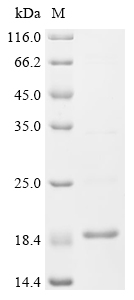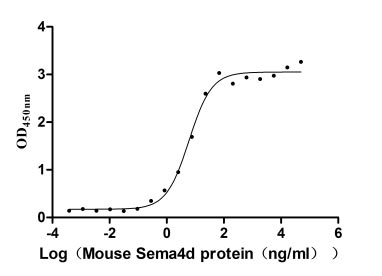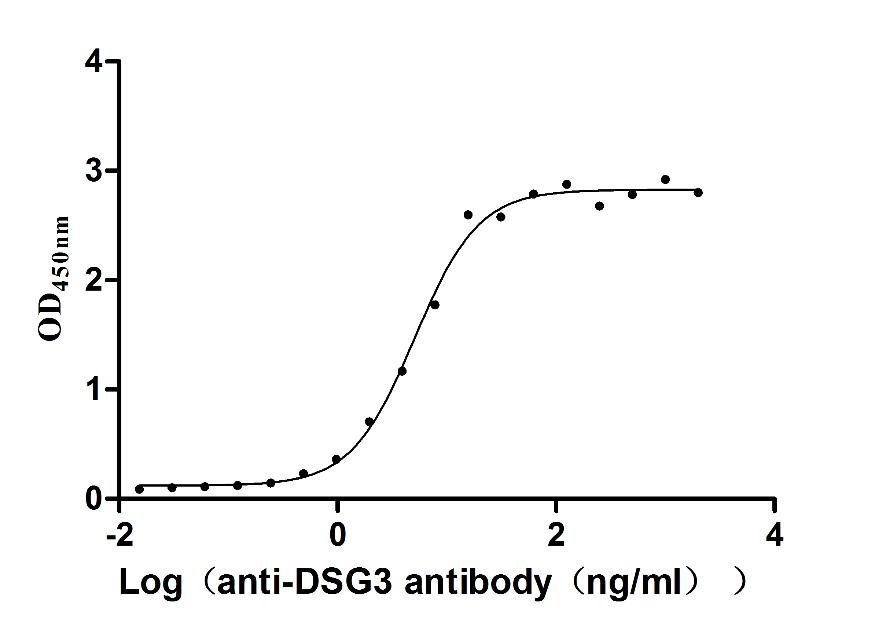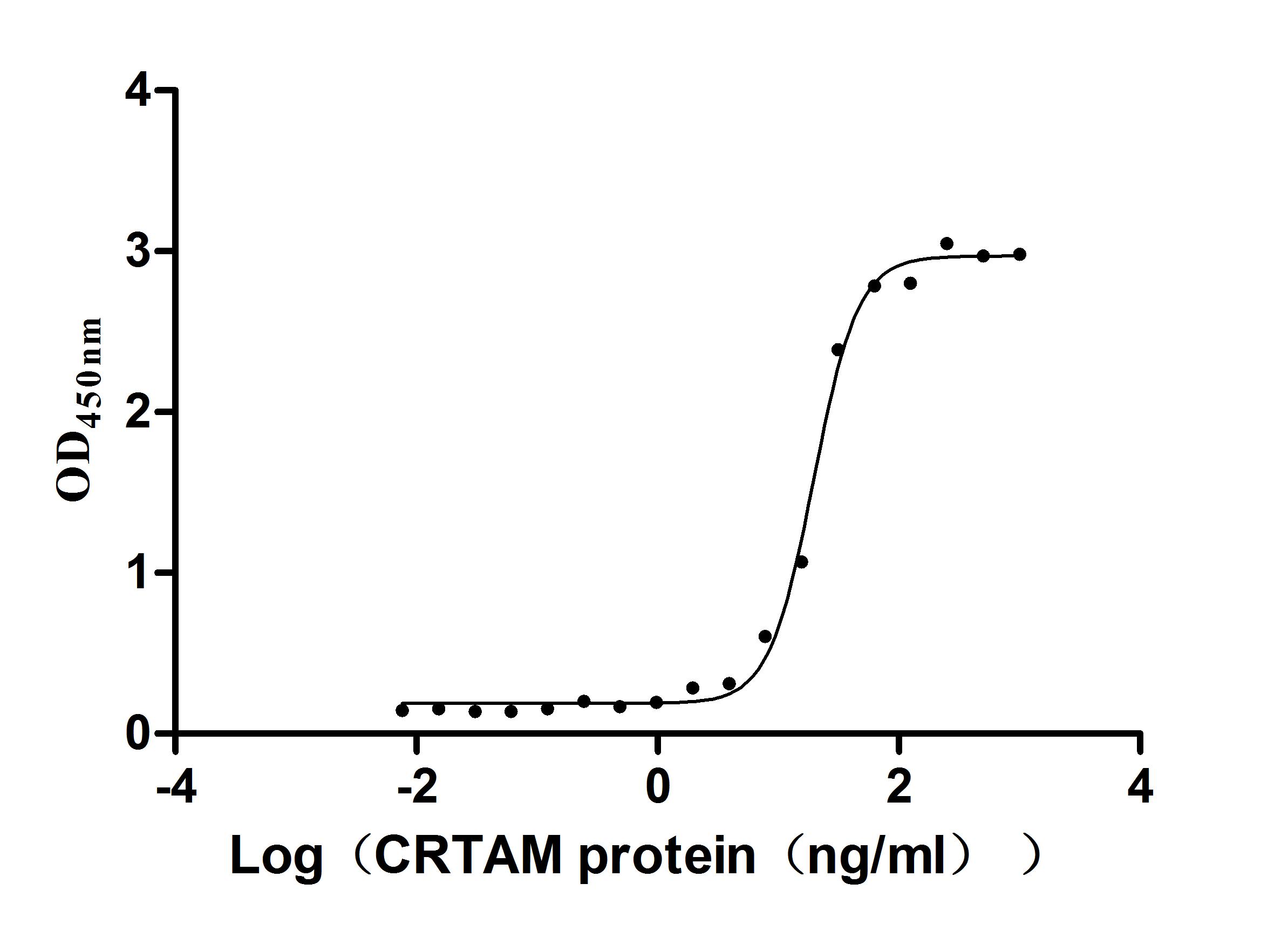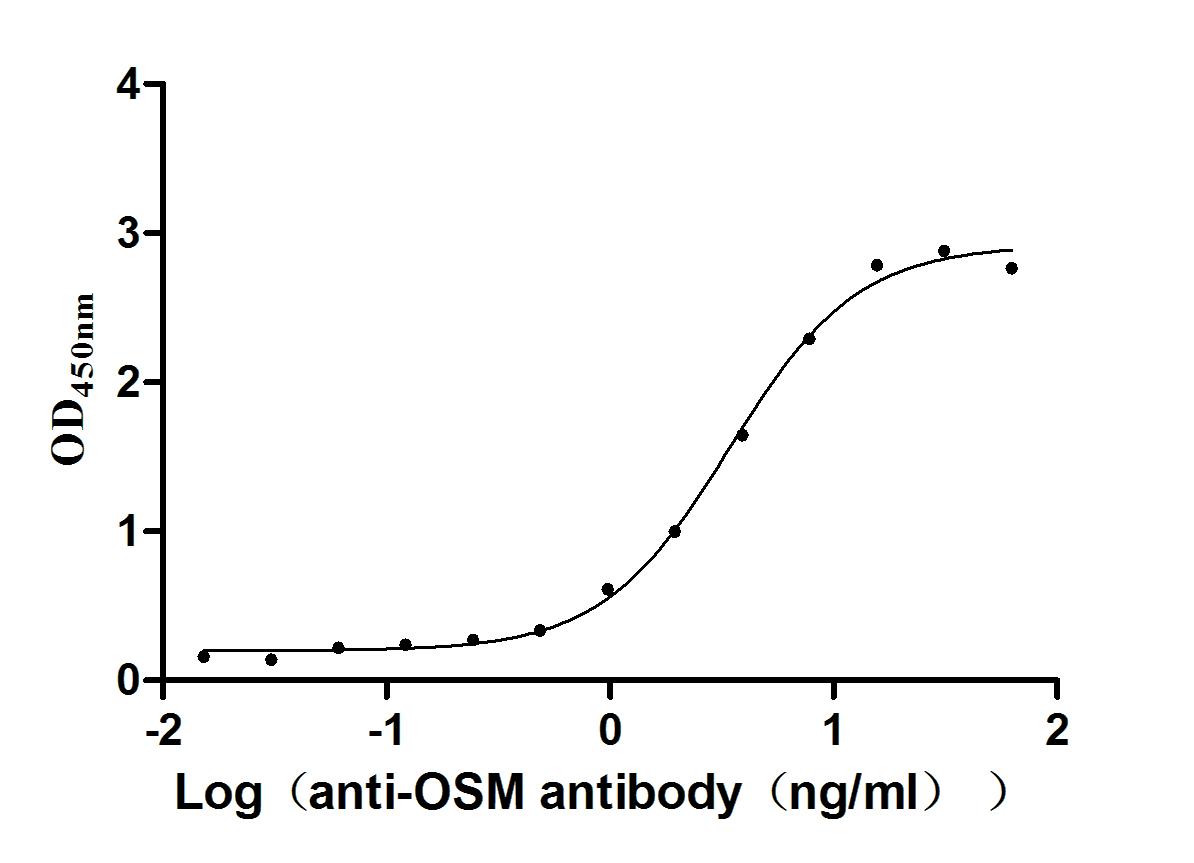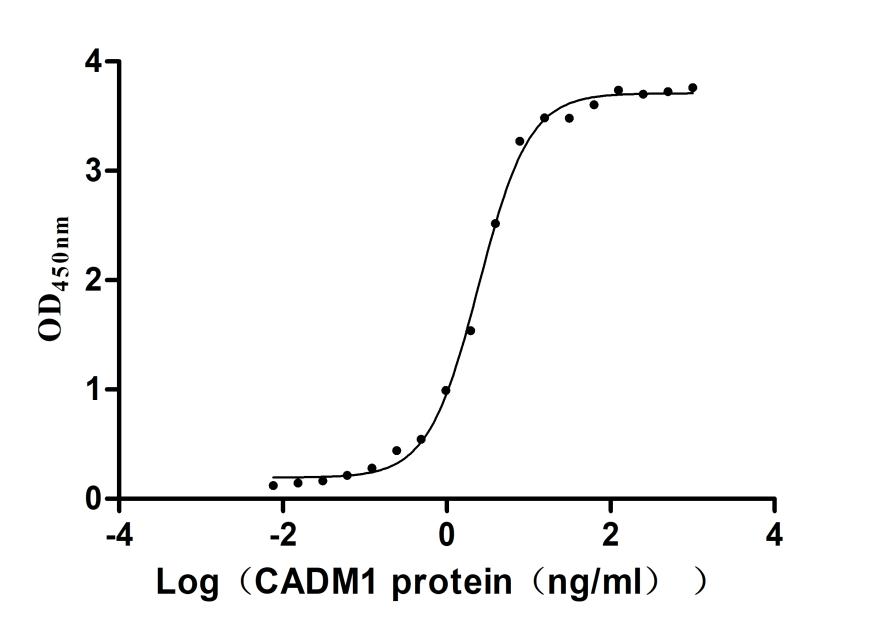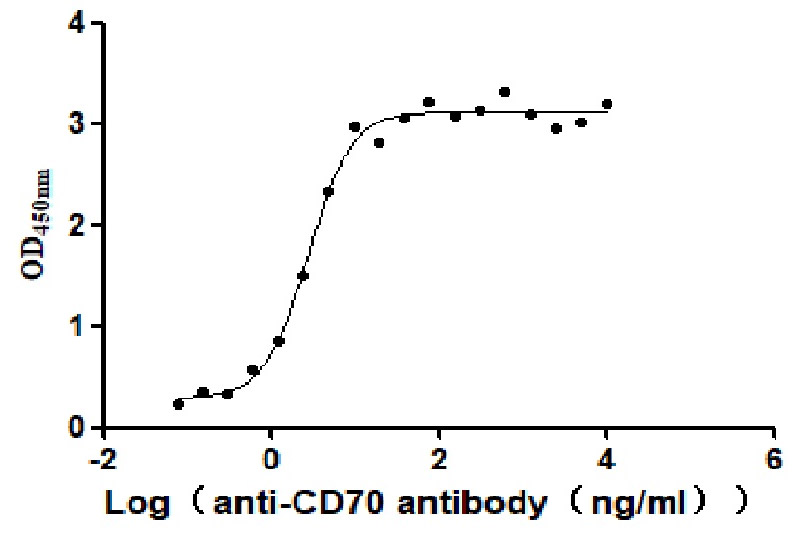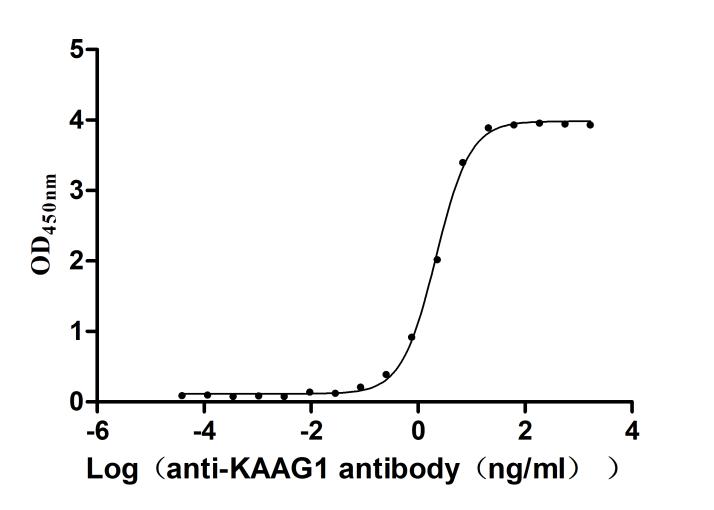Recombinant Human herpesvirus 2 Protein UL20 (UL20), partial
In Stock-
中文名稱:Recombinant Human herpesvirus 2 Protein UL20(UL20),partial
-
品名簡稱:Recombinant Human herpesvirus 2 UL20 protein, partial
-
貨號:CSB-EP310461HJX1
-
說明書:
-
規格:¥2328
-
圖片:
-
其他:
產品詳情
-
純度:Greater than 90% as determined by SDS-PAGE.
-
生物活性:Not Test
-
基因名:UL20
-
Uniprot No.:
-
種屬:Human herpesvirus 2 (strain HG52) (HHV-2) (Human herpes simplex virus 2)
-
蛋白長度:Partial
-
來源:E.coli
-
分子量:14
-
表達區域:1-63aa
-
氨基酸序列MTMRDDVPLLDRELVDEAACGGEDGELPLDEQFSLSSYGTSDFFVSSAYSRLPPHTQPVFSKR
Note: The complete sequence may include tag sequence, target protein sequence, linker sequence and extra sequence that is translated with the protein sequence for the purpose(s) of secretion, stability, solubility, etc.
If the exact amino acid sequence of this recombinant protein is critical to your application, please explicitly request the full and complete sequence of this protein before ordering. -
蛋白標簽:C-terminal 6xHis-tagged
-
產品提供形式:Liquid or Lyophilized powder
Note: We will preferentially ship the format that we have in stock, however, if you have any special requirement for the format, please remark your requirement when placing the order, we will prepare according to your demand. -
緩沖液:If the delivery form is liquid, the default storage buffer is Tris/PBS-based buffer, 5%-50% glycerol. If the delivery form is lyophilized powder, the buffer before lyophilization is Tris/PBS-based buffer, 6% Trehalose.
-
復溶:We recommend that this vial be briefly centrifuged prior to opening to bring the contents to the bottom. Please reconstitute protein in deionized sterile water to a concentration of 0.1-1.0 mg/mL.We recommend to add 5-50% of glycerol (final concentration) and aliquot for long-term storage at -20℃/-80℃. Our default final concentration of glycerol is 50%. Customers could use it as reference.
-
儲存條件:Store at -20°C/-80°C upon receipt, aliquoting is necessary for mutiple use. Avoid repeated freeze-thaw cycles.
-
保質期:The shelf life is related to many factors, storage state, buffer ingredients, storage temperature and the stability of the protein itself.
Generally, the shelf life of liquid form is 6 months at -20°C/-80°C. The shelf life of lyophilized form is 12 months at -20°C/-80°C. -
貨期:3-7 business days
-
注意事項:Repeated freezing and thawing is not recommended. Store working aliquots at 4℃ for up to one week.
-
Datasheet & COA:Please contact us to get it.
相關產品
靶點詳情
-
功能:Plays an essential role in egress of virus particles from the nucleus, cytoplasmic envelopment and virus-induced cell fusion. Forms a functional protein complex with gK and this interaction is absolutely essential for their coordinate intracellular transport, gK glycosylation, expression on host cell surface, and function. Together, they modulate gB-mediated virus-induced cell fusion and virion egress and therefore actively participate in these processes.
-
亞細胞定位:Virion. Host cell membrane; Multi-pass membrane protein. Host endosome membrane; Multi-pass membrane protein. Host Golgi apparatus membrane; Multi-pass membrane protein. Host nucleus membrane; Multi-pass membrane protein.
-
蛋白家族:Alphaherpesvirinae UL20 family
-
數據庫鏈接:
KEGG: vg:24271455
Most popular with customers
-
Recombinant Mouse Semaphorin-4D (Sema4d), partial (Active)
Express system: Mammalian cell
Species: Mus musculus (Mouse)
-
Recombinant Human Desmoglein-3 (DSG3), partial (Active)
Express system: Baculovirus
Species: Homo sapiens (Human)
-
Recombinant Human Cell adhesion molecule 1 (CADM1), partial (Active)
Express system: Mammalian cell
Species: Homo sapiens (Human)
-
Recombinant Human Oncostatin-M (OSM), partial (Active)
Express system: Mammalian cell
Species: Homo sapiens (Human)
-
Recombinant Human Cytotoxic and regulatory T-cell molecule (CRTAM), partial (Active)
Express system: Mammalian cell
Species: Homo sapiens (Human)
-
Recombinant Human CD70 antigen (CD70), partial (Active)
Express system: Mammalian cell
Species: Homo sapiens (Human)
-
Recombinant Human Kidney-associated antigen 1 (KAAG1) (Active)
Express system: E.coli
Species: Homo sapiens (Human)

